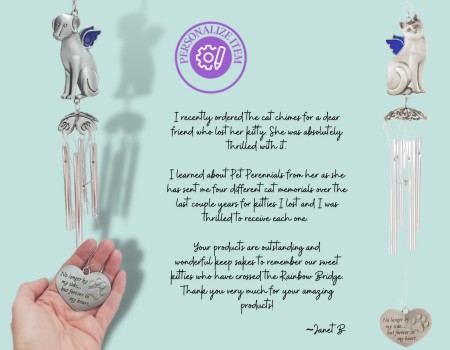Losing a pet is akin to losing a family member. For many, pets are not just animals; they are companions, confidantes, and sources of unconditional love. When someone you know experiences this profound loss, it can be difficult to find the right words or actions to offer comfort. Often, well-meaning people inadvertently say things that minimize the pain, such as “It’s just a pet,” or “You can always get another one.” Understanding What To Do For Someone Who Lost A Pet requires empathy, sensitivity, and a recognition of the deep bond between humans and their animal companions.
Here are compassionate gestures and practical steps you can take to support someone grieving the loss of their beloved pet, ensuring they feel understood and cared for during this difficult time.
1. Be Present and Offer Your Support
Grief is a deeply personal journey, and everyone experiences it differently. Some individuals may need solitude to process their emotions, while others seek solace in the presence of friends and family. When someone is grieving the loss of a pet, the most valuable thing you can do is let them know you are there for them. Simply saying, “I’m here for you if you need anything,” can be incredibly comforting. Avoid making promises you can’t keep; instead, offer specific, tangible support if you are able, such as, “I’m available to listen if you want to talk,” or “Let me know if you need help with anything around the house.” This open offer allows them to reach out when and if they feel ready, without pressure.
2. Listen With Empathy, Not Assumptions
It’s impossible to fully understand the depth of someone else’s grief, especially concerning a relationship you may not have personally experienced. Avoid the pitfall of pretending to know exactly how they feel. Instead, practice active listening. Ask open-ended questions like, “How are you feeling today?” and truly listen to their response. Allow them to express their emotions without interruption or judgment. Sometimes, the most powerful form of support is simply being heard and validated. If they choose not to share, respect their need for privacy while reiterating your availability when they are ready. Let them know they don’t have to navigate this pain alone.
3. Acknowledge the Significance of Their Bond
For many pet owners, the relationship with their pet is profound and deeply meaningful. Pets are integral parts of our daily lives, sharing our homes, our routines, and our most intimate moments. They offer non-judgmental companionship, listen to our worries, and celebrate our joys. It’s crucial to acknowledge the unique and powerful connection they shared with their pet. Saying something like, “I know how much [pet’s name] meant to you,” or “It’s clear how strong your bond was,” validates their grief and assures them that you understand the magnitude of their loss. This acknowledgment can encourage them to open up and share memories, knowing their relationship is respected and understood.
4. Share Positive Memories of Their Pet
While it’s important to acknowledge their sadness, gently shifting the focus to positive memories can also be helpful. If you have a happy memory of their pet, share it with them. Recounting a funny anecdote or a heartwarming moment reminds them of the joy their pet brought into their lives and reinforces the idea that their pet’s life was full of love and happiness. Sharing these stories also demonstrates that others recognized and appreciated their pet’s special qualities. Remind them that “the love never dies,” and that those cherished memories will endure. This can provide a sense of comfort and help them transition from focusing solely on the pain of loss to celebrating the life they shared.
5. Take Care of Their Basic Needs
Grief can be physically and emotionally draining. Often, when someone is deeply grieving, basic self-care, such as eating and sleeping, can be neglected. In a practical and caring way, inquire about their well-being. Ask, “Have you been eating okay?” or “How are you sleeping?” Offer to bring over a meal or groceries, or help with household tasks. These practical gestures show that you care about their overall well-being and are willing to support them in tangible ways. Remember the tradition of bringing food to grieving families; this act of kindness remains relevant and deeply appreciated. By attending to their basic needs, you alleviate some of the burdens they are carrying and show genuine concern.
6. Reassure Them About Guilt and Second-Guessing
Many pet owners grapple with guilt after losing a pet, questioning end-of-life decisions or wondering if they could have done more. They may feel they euthanized too soon or too late, or that they didn’t provide the best possible care. It’s important to reassure them that these feelings are common but often unfounded. Gently remind them that they acted out of love and with the best information they had at the time. Share that pets, if they could communicate, would not want their owners to carry guilt. Emphasize that they provided a loving home and made difficult decisions with their pet’s best interests at heart. This reassurance can help alleviate some of the self-blame and allow them to focus on healing.
7. Offer Ongoing Support, Not Just Immediate Condolences
Grief is not linear; it comes in waves and can resurface unexpectedly, even long after the initial loss. The initial outpouring of sympathy is helpful, but ongoing support is crucial. Check in with them regularly in the weeks and months following the loss. Recognize that triggers, such as returning to familiar routines without their pet, anniversaries, or even seeing other pets that resemble theirs, can bring waves of sadness. A simple message like, “Thinking of you and [pet’s name] today,” can mean a lot. Continue to offer a listening ear and practical support as they navigate the long-term grieving process.
8. Consider a Thoughtful Sympathy Gift
A tangible expression of sympathy can be a meaningful way to acknowledge their loss. A sympathy card with a handwritten, heartfelt message is always appropriate. Alternatively, consider a pet memorial gift that honors their pet’s memory. Websites like Pet Perennials offer a range of thoughtful pet loss remembrances, such as Memorial Wind Chimes, that can serve as lasting tributes to their beloved companion. Choosing a gift that resonates with the individual and their pet’s personality can provide comfort and serve as a reminder that their pet is remembered and cherished.
 Dog and Cat Memorial Wind Chimes for Pet Loss at PetPerennials.com
Dog and Cat Memorial Wind Chimes for Pet Loss at PetPerennials.com
Alt text: Pet Memorial Wind Chimes: A thoughtful sympathy gift for someone grieving the loss of a dog or cat, available at PetPerennials.com.
Supporting someone through pet loss is about offering consistent empathy, understanding the depth of their bond, and providing practical and emotional support. By knowing what to do for someone who lost a pet, you can help them navigate their grief and honor the memory of their cherished companion.
